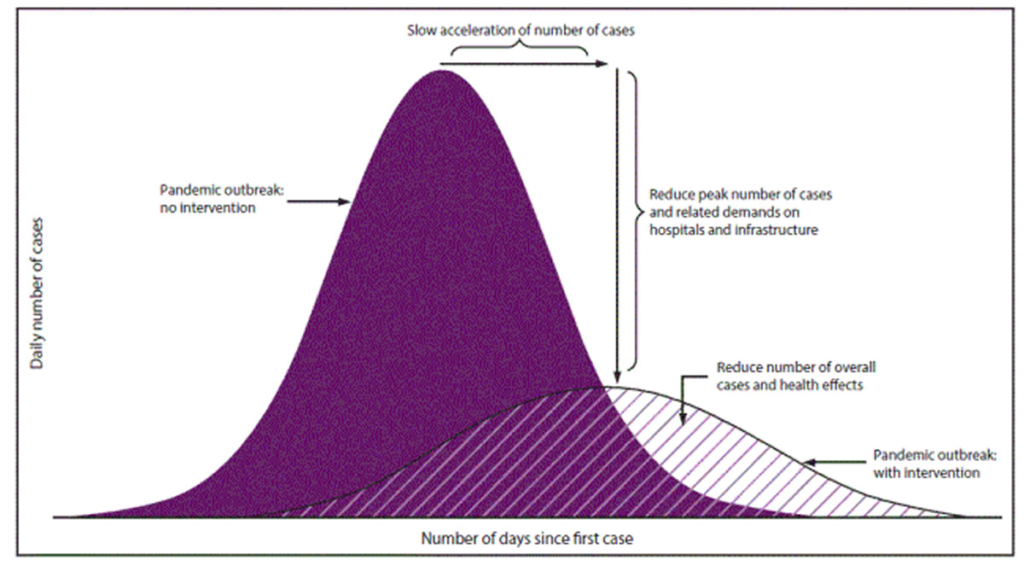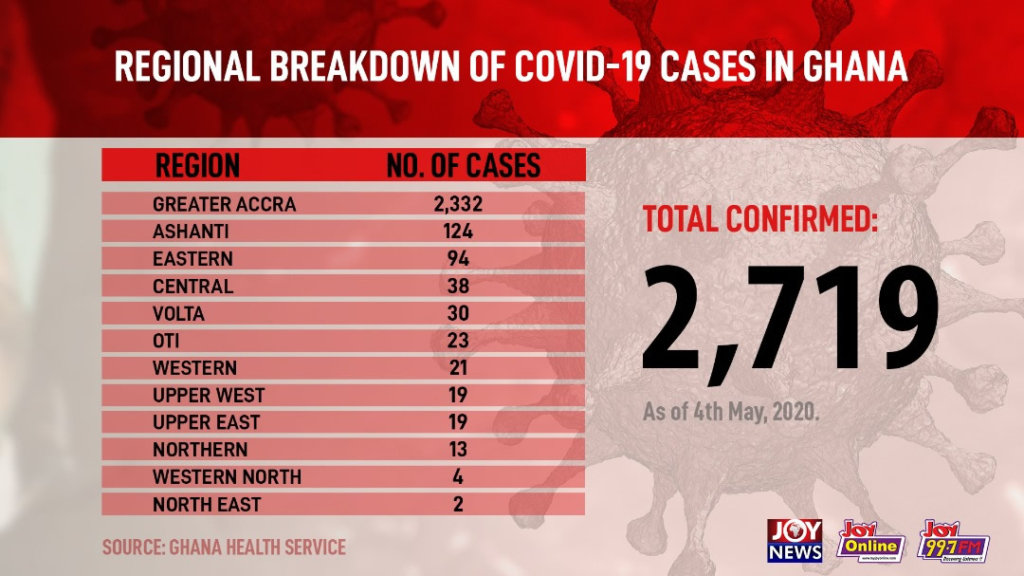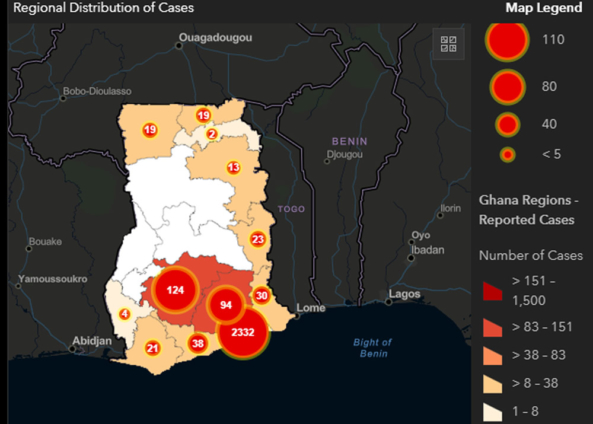Data on Ghana’s rate of Covid-19 infections shows the country’s case count has peaked, a top official of the Ghana Health Service (GHS) has revealed.
Director of Public Health at the GHS, Dr Ebenezer Badu Sarkodie, said Tuesday that the rate of infection is yet to decline, but this will only happen if the preventive protocol for the virus are adhered to.
“We are not off the hook yet; but then if we continue the way we are doing now – adhering to the various social distancing and adhering to the various individual preventive measures – these will let us come down from where we are,” he said during the Q&A segment of a Ministry of Information briefing on Ghana’s anti-Covid-19 efforts.

(Image: © CDC)
Tuesday's press briefing at the Ministry of Information Press Centre also addressed a number of issues, key among them, Ghana’s Rapid Diagnostic Testing (RDT) plans for the Covid-19.
Ghana has recorded 2,719 coronavirus cases as of May 4, 2020, with 18 deaths and 294 recoveries. The country has tested over 129,000 suspected cases since March.

Answering the question on where Ghana was on the Covid-19 infection curve, Dr Sarkodie explained that because Ghana started an aggressive and enhanced contact tracing early on - for instance testing a lot of people who were not even showing symptoms - only a few people tested positive for the virus from a large pool of samples.
He said the best data that Ghana has been using to plot the bell-shaped curve that pinpoints the country’s position in terms of infection rate, are results from samples received from different parts of the country - that is from March 12, 2020, when the first case was confirmed.
Global picture
The global numbers for Covid-19 infections are growing rapidly and far from the peak, an expert from the World Health Organisation (WHO) said Tuesday.
Dr Gauden Galea, WHO representative in China, said at a press conference that the only way that the pandemic will be overcome is when everyone has immunity either from being exposed to the virus or after taking a vaccine.
"Until such a time, we are given what we might call the old-fashioned public health methods that have stood the test of time. We need to assess the risks at levels that range from at the top of country-level down to the individuals," he said.
He has called for "testing, testing and testing" to improve risk assessment and prevention measures such as hand washing and respiratory etiquette.
Latest Stories
-
Expansion Drive: Takoradi Technical University increases faculties
1 hour -
SHS heads demand payment of outstanding funds before reopening of schools
2 hours -
We thank God for the 2024 general elections – Akufo-Addo
2 hours -
Coconut Grove Beach Resort marks 30 years of excellence with memorable 9 lessons & carols service
2 hours -
WAFU B U-17 Girls’ Cup: Black Maidens beat Nigeria on penalties to win inaugral tournament
3 hours -
Real Madrid beat Sevilla to keep pressure on leaders Atletico
4 hours -
Liverpool put six past Spurs to go four points clear
4 hours -
Manchester United lose 3-0 at home to Bournemouth yet again
4 hours -
CHAN 2024Q: ‘It’s still an open game’ – Didi on Ghana’s draw with Nigeria
4 hours -
CHAN 2024Q: Ghana’s Black Galaxies held by Nigeria in first-leg tie
5 hours -
Dr Nduom hopeful defunct GN bank will be restored under Mahama administration
6 hours -
Bridget Bonnie celebrates NDC Victory, champions hope for women and youth
6 hours -
Shamima Muslim urges youth to lead Ghana’s renewal at 18Plus4NDC anniversary
7 hours -
Akufo-Addo condemns post-election violence, blames NDC
7 hours -
DAMC, Free Food Company, to distribute 10,000 packs of food to street kids
8 hours

